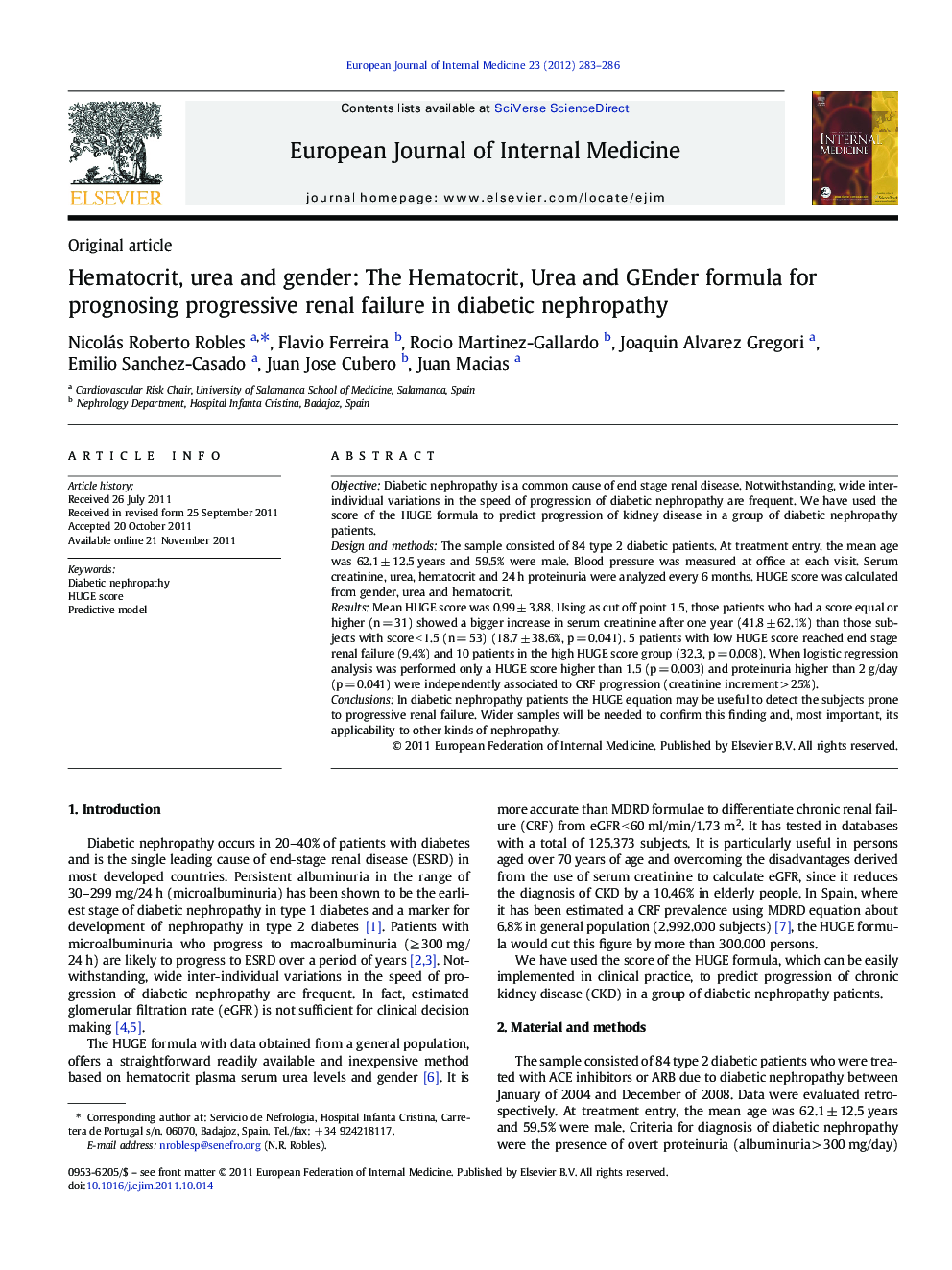| Article ID | Journal | Published Year | Pages | File Type |
|---|---|---|---|---|
| 3467660 | European Journal of Internal Medicine | 2012 | 4 Pages |
ObjectiveDiabetic nephropathy is a common cause of end stage renal disease. Notwithstanding, wide inter-individual variations in the speed of progression of diabetic nephropathy are frequent. We have used the score of the HUGE formula to predict progression of kidney disease in a group of diabetic nephropathy patients.Design and methodsThe sample consisted of 84 type 2 diabetic patients. At treatment entry, the mean age was 62.1 ± 12.5 years and 59.5% were male. Blood pressure was measured at office at each visit. Serum creatinine, urea, hematocrit and 24 h proteinuria were analyzed every 6 months. HUGE score was calculated from gender, urea and hematocrit.ResultsMean HUGE score was 0.99 ± 3.88. Using as cut off point 1.5, those patients who had a score equal or higher (n = 31) showed a bigger increase in serum creatinine after one year (41.8 ± 62.1%) than those subjects with score < 1.5 (n = 53) (18.7 ± 38.6%, p = 0.041). 5 patients with low HUGE score reached end stage renal failure (9.4%) and 10 patients in the high HUGE score group (32.3, p = 0.008). When logistic regression analysis was performed only a HUGE score higher than 1.5 (p = 0.003) and proteinuria higher than 2 g/day (p = 0.041) were independently associated to CRF progression (creatinine increment > 25%).ConclusionsIn diabetic nephropathy patients the HUGE equation may be useful to detect the subjects prone to progressive renal failure. Wider samples will be needed to confirm this finding and, most important, its applicability to other kinds of nephropathy.
